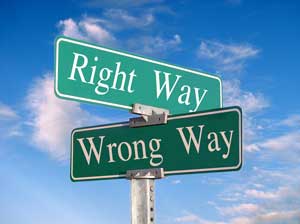 When should you follow your intuition? That inner voice that nudges you when you’re torn between two choices can help in some cases, but in certain situations deliberation has proven to be more effective. To make the best decision, when should you tap into your intuition and when should you apply logic to make a decision?
When should you follow your intuition? That inner voice that nudges you when you’re torn between two choices can help in some cases, but in certain situations deliberation has proven to be more effective. To make the best decision, when should you tap into your intuition and when should you apply logic to make a decision?
According to some scientists, intuition is a series of cognitive processes that happens very quickly, enabling you to come up with a decision instantly. In a matter of seconds, your brain takes in all of the information about the present situation, compares it to similar situations in the past, and uses that to make the decision. Essentially, that “gut feeling” is typically a fast heartbeat or a knot in your stomach, as opposed to a conscious thought. Intuition can be a valuable tool when you are already knowledgeable about the present situation. For instance, your immediate judgment about a sports game is more likely to be accurate if you’ve spent some time on the court or field.
So in which situations is deliberation more effective than intuition? Researchers found that when it comes to activities, such as playing chess, deliberation may be a more useful approach. Chess players normally take a few minutes to make a decision and the players who think longer about their decision end up making stronger moves compared to ones they were initially going to choose.
Despite the strategy a person uses to make a decision, many experts agree it is not necessarily about whether our gut feelings are “right” or “wrong,” but rather how to consider all of our thoughts and emotions when making an important decision. While you may not be able to make the right decision in every situation, you can always learn from these experiences and use that knowledge to make better decisions going forward.
Dr. Yagoda’s intuition has been regularly praised by patients and peers. She is a warm, caring detail-oriented doctor who provides her patients with a full spectrum of treatment options to ensure optimal health and wellness.
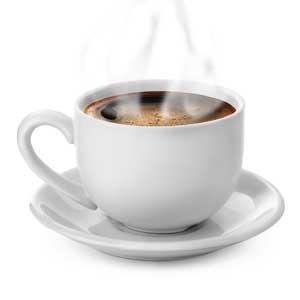 If sipping on a hot cup of coffee in the morning is one of your simple pleasures, you’ll be happy to learn that coffee may also add years to your life. People who live on the Greek Island of Ikaria are known for their long life expectancies, and researchers have been studying the islanders to learn the reason why.
If sipping on a hot cup of coffee in the morning is one of your simple pleasures, you’ll be happy to learn that coffee may also add years to your life. People who live on the Greek Island of Ikaria are known for their long life expectancies, and researchers have been studying the islanders to learn the reason why.






























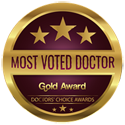
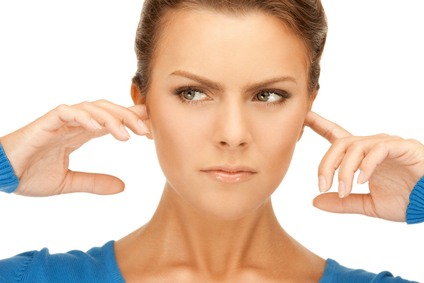 Did you know approximately 15 percent of Americans ages 20 to 69 have high-frequency hearing loss that may have been caused by loud noise exposure? Frequent exposure to
Did you know approximately 15 percent of Americans ages 20 to 69 have high-frequency hearing loss that may have been caused by loud noise exposure? Frequent exposure to 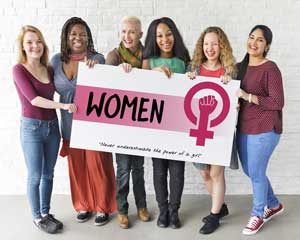 In honor of Women’s History Month, we’re celebrating the accomplishments of these 50 inspirational women who helped shape the health care industry. These female doctors and researchers have had the greatest impact in medicine and health research and deserve to be recognized for their contributions to society. Natural birth, radiation therapy, and lifesaving blood transfusions are health innovations that would not be possible without these
In honor of Women’s History Month, we’re celebrating the accomplishments of these 50 inspirational women who helped shape the health care industry. These female doctors and researchers have had the greatest impact in medicine and health research and deserve to be recognized for their contributions to society. Natural birth, radiation therapy, and lifesaving blood transfusions are health innovations that would not be possible without these  Well, it’s that time of year again. Allergy season is coming and as the pollen is building up, many of you may be beginning to experience the familiar and unwanted itchy
Well, it’s that time of year again. Allergy season is coming and as the pollen is building up, many of you may be beginning to experience the familiar and unwanted itchy  Myth or Medical Miracle?
Myth or Medical Miracle? 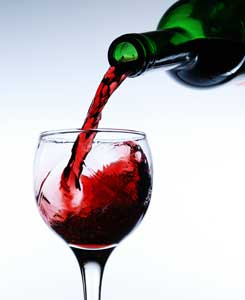 In European countries like France, red wine consumption is much higher than in many other parts of the world. The phenomenon known as the ‘French Paradox’ has astounded the medical world, because despite having
In European countries like France, red wine consumption is much higher than in many other parts of the world. The phenomenon known as the ‘French Paradox’ has astounded the medical world, because despite having  When should you follow your intuition? That inner
When should you follow your intuition? That inner